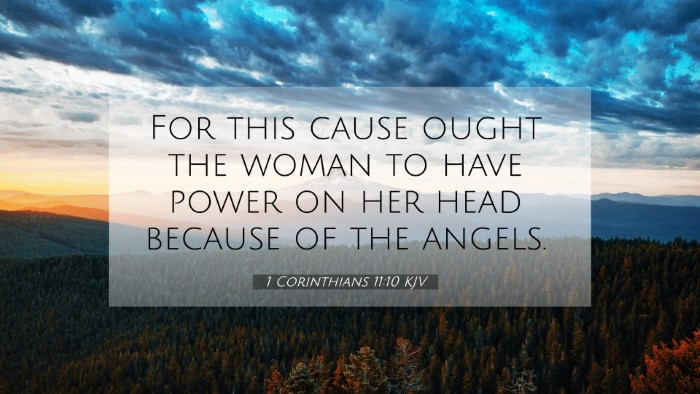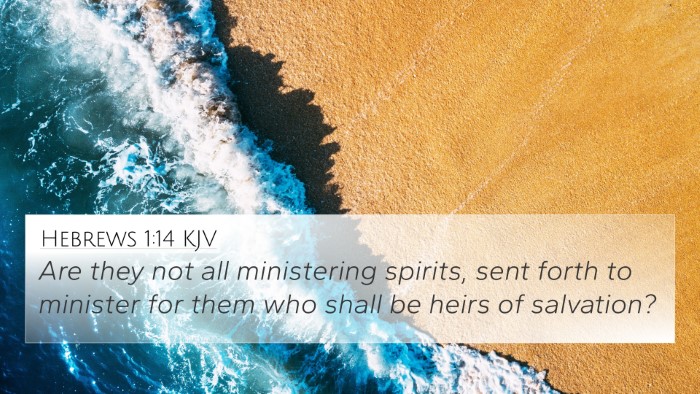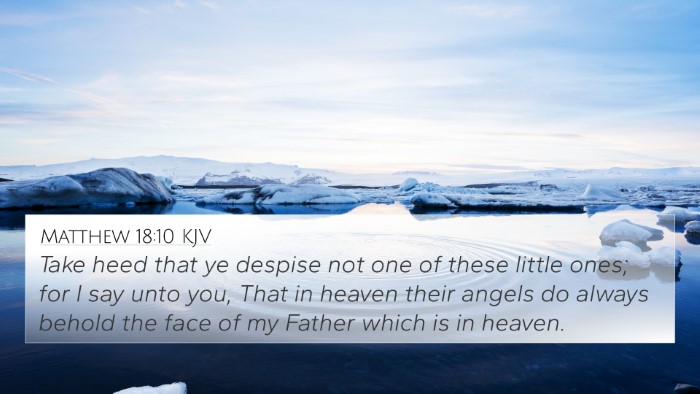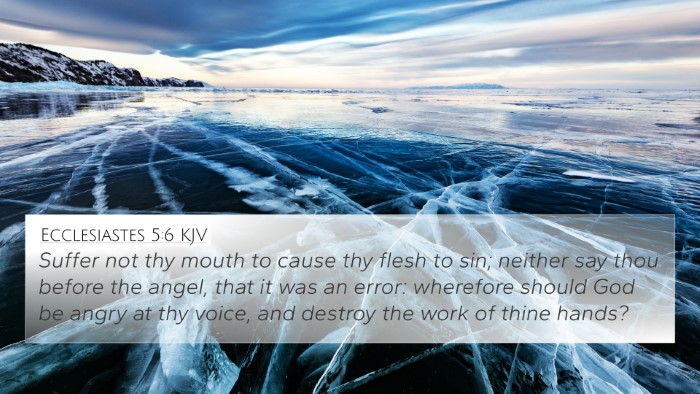Understanding 1 Corinthians 11:10
1 Corinthians 11:10 states, "For this cause ought the woman to have power on her head because of the angels."
This verse touches on significant themes concerning authority, gender roles, and spiritual presence in the context of worship. Let's explore its meaning through insights drawn from renowned commentaries.
Commentary Insights
Matthew Henry's Commentary
Matthew Henry emphasizes the cultural background surrounding this verse, noting that the "power on her head" signifies authority and respect. He suggests that women exhibiting head coverings during worship serve as a sign of their submission and acknowledgment of divine order. Moreover, Henry interprets "because of the angels" as a reminder of spiritual beings observing human conduct, reinforcing the importance of propriety in worship settings.
Albert Barnes' Notes on the Bible
Albert Barnes elaborates that Paul’s instruction here relates to the protocol within the church, where women are to adorn themselves appropriately to reflect submission to authority. Barnes asserts that this observance not only ensures a conducive atmosphere for worship but also honors the divine hierarchy. He points out that the presence of angels serves both as a witness to worship and as a motivation for believers to behave distinctly in honoring God's design.
Adam Clarke's Commentary
Adam Clarke provides a detailed explanation of the term "power," which he ties to the concept of authority and respect within the assembly. He argues that the "angels" referenced are likely symbolic of God's approval and observance during worship. Clarke believes this verse encourages women to demonstrate their commitment to the church’s standards, underlining that godliness and decorum are essential aspects of Christian witness.
Key Themes and Connections
Within this verse, several key themes emerge:
- Authority and Submission: The instruction for women to have a symbol of authority on their head underscores the biblical concept of order within both the church and the family.
- Spiritual Observance: The reference to angels indicates that worship is not merely a human act but involves the divine realm, adding weight to the reverence required in such settings.
- Gender Roles in Church: This verse engages with the larger discourse regarding how men and women are to function within the church context, each fulfilling their respective roles while honoring God.
Bible Verse Cross-References
1 Corinthians 11:10 connects with several other scripture passages, deepening our understanding of its context:
- 1 Timothy 2:11-12: Addresses women's roles in teaching and authority within the church.
- Ephesians 5:22-24: Discusses the submission of wives to their husbands, reflecting the order in relationships.
- Genesis 2:18: Outlines the creation of woman as a helper, establishing foundational gender roles.
- 1 Peter 3:1: Encourages wives to submit to their husbands, reinforcing the call for respect in relationships.
- 1 Corinthians 11:3: Discusses the headship of Christ over man, and man over woman, further exhibiting the theme of authority.
- Revelation 14:6: Mentions angels in the context of proclaiming the gospel, bridging the divine and human involvement in worship.
- Romans 13:1: Acknowledges the importance of submission to authority, reflecting a greater theme of order in God’s creation.
Connecting Themes
Understanding 1 Corinthians 11:10 reveals deeper connections between its themes and others found throughout Scripture:
- Comparative Bible Verse Analysis: Comparing this verse with teachings on order can provide clarity on gender roles.
- Thematic Bible Verse Connections: Various passages that speak on authority and submission echo similar messages regarding the divine order.
Using Cross-References for Deeper Study
To utilize cross-references effectively while studying the Bible, consider the following tools:
- Bible Concordance: Helps locate specific verses or themes quickly.
- Bible Reference Resources: Useful for connecting biblical verses through themes or contextual connections.
- Cross-reference Bible Study Methods: Practical approaches for examining scripture and its interrelations.
Conclusion
1 Corinthians 11:10 offers profound insights into the relationship between authority and worship, prompting readers to examine their roles within the church. Through careful cross-referencing and thematic exploration, believers can deepen their understanding of God's design and their place within it.







